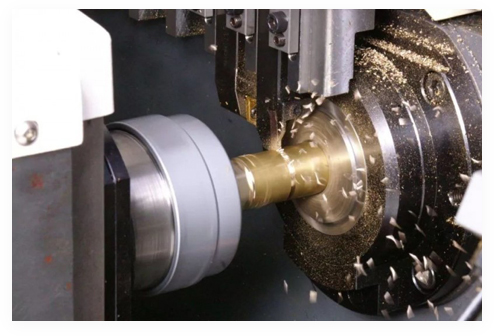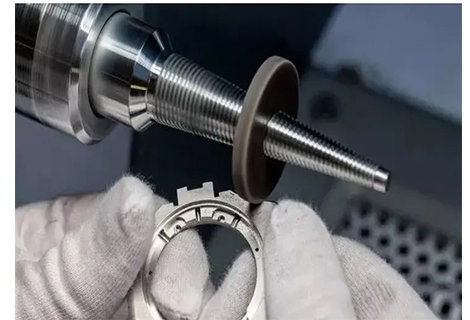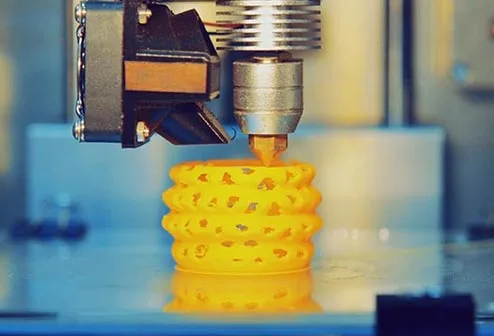The so-called precision grinding process is to utilize fine-grained abrasive grains and micro-powder to process ferrous metals, hard and brittle materials, etc., in order to obtain high machining accuracy and low surface roughness values. Precision grinding is to use super-hard abrasive grinding wheel as the main processing tool, and implement ultra-micro excision processing on precision machine tools (single cutter feed depth is generally 0.01um-1um). Precision grinding is a systematic project, its components include the processed material, precision machine tools, super-hard abrasive grinding wheels, precision machining process, high-precision testing technology and ultra-high requirements of the processing environment, only these components have to meet the requirements in order to process the precision workpiece.
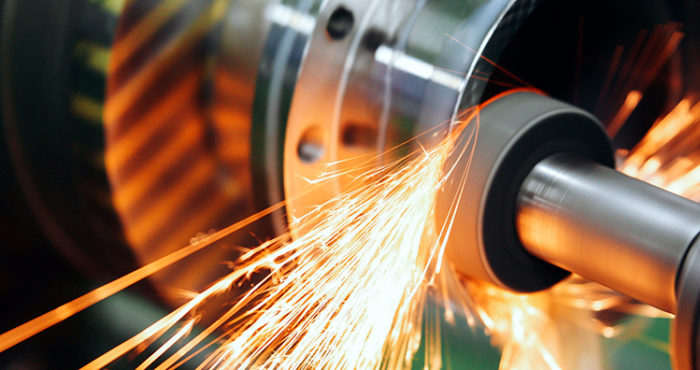
Precision grinding materials are generally difficult to process, high hardness, high brittleness materials, such as ceramics, glass, semiconductor wafers, gemstones, cemented carbide and so on. Precision grinding of these materials, the material to brittle fracture removal as the main removal method, powder and plastic removal as a secondary way, the production of chips with the high-speed rotation of the grinding wheel and water jet discharge, and processing of non-ferrous metals and softer hardness of the material, grinding chips are very easy to adhere to the surface of the grinding wheel grits, affecting the grinding performance of the grinding wheel.
Precision grinding requires the machine tool to have high rigidity, guideway rigidity requirements are generally more than 500N/um; high motion resolution, that is, the minimum resolution of the machine tool feed, generally more than 0.1um; high motion accuracy, including the positioning accuracy of the guideway, the spindle rotary accuracy, and so on, generally require more than 0.1um; high stability, the machine tool needs to be high resistance to external interference and the stability of the entire processing system processing capability. Stable processing capability of the entire processing system.
Superabrasive grinding wheels with artificial diamond, CBN, corundum as a common abrasive. Wheel selection indicators include abrasive type, wheel hardness, abrasive particle size, porosity, abrasive concentration, type of bonding agent. For different grinding materials, the corresponding suitable abrasives should be selected, SiC, K9 glass, alumina ceramics can be selected diamond grinding wheel, stainless steel can be selected corundum grinding wheel. Grinding harder materials should be used softer grinding wheels, wheel abrasives are easy to fall off during processing, always maintain its sharpness, while grinding softer materials can be used to ensure the processing accuracy of the harder grinding wheel. Rough grinding optional particle size range of 40 # ~ 300 #, fine grinding optional particle size 180 # ~ 1200 #. 4.
Processing technology is an important factor affecting the machining accuracy. Grinding process includes such as grinding wheel type selection, grinding method selection, grinding process arrangement, processing parameters, workpiece tooling and measurement program, processing error compensation technology.
Detection on the one hand is applied in the machine tool guideway and spindle position absolute measurement, to ensure that the machine tool has a very high precision. On the other hand, it is applied to the detection of workpiece accuracy, precision grinding workpiece accuracy up to 0.1um, surface roughness up to 0.02um or less, the corresponding detection technology should also meet certain accuracy requirements, contact measurement such as probe scanning measurement, non-contact such as machine tool interferometers, white-light interferometers, atomic force microscope and so on. There is another aspect is in the grinding force, grinding power, grinding temperature and other high-precision monitoring of the amount of machining process, in order to make timely assessment of the machining conditions, adjust the processing parameters.
Environmental requirements include the cleanliness of the environment, vibration and noise interference and the degree of stability of the ambient temperature. Precision machine tools must be placed in a clean room in order to give full play to the advantages of ultra-clean room. For different precision machine tools, manufacturers will generally give the environmental requirements, 100-class clean room requirements per cubic meter of space above 0.5um diameter suspended particles not more than 3520, while the thousands of clean room standards for 35200. Environmental vibration interference will not only cause the vibration of the machine tool itself, but also affect the grinding wheel position accuracy, most of the precision machining commonly used vibration isolation groove, vibration isolation pads and other technologies to prevent vibration interference. Temperature has a great impact on the degree of processing, precision machining are required to control the ambient temperature within a certain range, and the gradient of temperature changes have certain requirements.
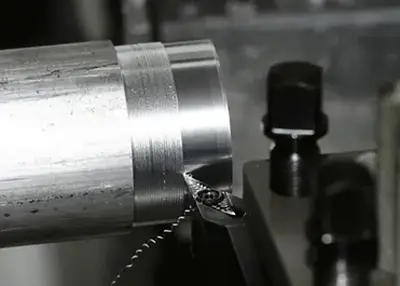 Navigating Internal Turning vs External TurningNovember 22, 2023Welcome to the world of precision engineering, where every turn counts. As a CNC machining enthusiast, I invite you on a journey to uncover the subtleties between internal turning and external turning - two pivotal techniques shaping the art of machining.view
Navigating Internal Turning vs External TurningNovember 22, 2023Welcome to the world of precision engineering, where every turn counts. As a CNC machining enthusiast, I invite you on a journey to uncover the subtleties between internal turning and external turning - two pivotal techniques shaping the art of machining.view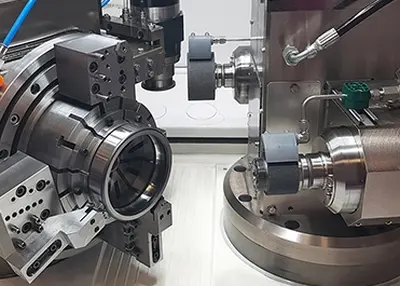 What kind of process is suitable for machining different types of parts?October 31, 2023Machining is a widely used manufacturing process and is one of the common machining methods used in the manufacturing industry for making different types of parts. Different types of parts require dif...view
What kind of process is suitable for machining different types of parts?October 31, 2023Machining is a widely used manufacturing process and is one of the common machining methods used in the manufacturing industry for making different types of parts. Different types of parts require dif...view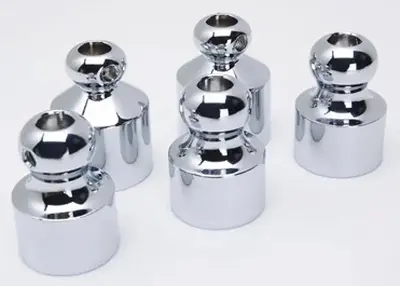 How to Remove Chrome Plating Easily? (A Complete Guide 2024)March 11, 2024Learn how to remove chrome plating effectively with our comprehensive guide and get expert tips for successfully stripping chrome from metal surfaces.view
How to Remove Chrome Plating Easily? (A Complete Guide 2024)March 11, 2024Learn how to remove chrome plating effectively with our comprehensive guide and get expert tips for successfully stripping chrome from metal surfaces.view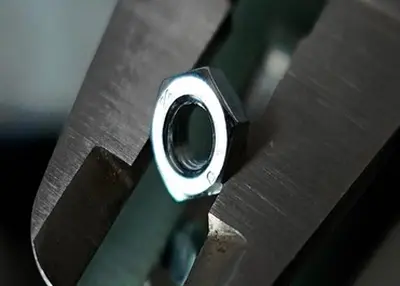 Precautions for Stamping Dies 1July 11, 2023Spring compression and calculationIn a set of stamping dies, more elastic materials need to be used, including springs of different specifications, urethane, nitrogen springs, etc., and different elas...view
Precautions for Stamping Dies 1July 11, 2023Spring compression and calculationIn a set of stamping dies, more elastic materials need to be used, including springs of different specifications, urethane, nitrogen springs, etc., and different elas...view The Magic of CNC Powder CoatingFebruary 29, 2024In the world of manufacturing, CNC powder coating has emerged as a game-changing technology, offering unmatched precision and durability for a wide range of products. But what exactly is CNC powder co...view
The Magic of CNC Powder CoatingFebruary 29, 2024In the world of manufacturing, CNC powder coating has emerged as a game-changing technology, offering unmatched precision and durability for a wide range of products. But what exactly is CNC powder co...view The Complete Guide to CNC Machining ServiceMay 31, 2024What is CNC machining service? What are advantages of CNC Machining Service? How to find a reliable CNC Machining Service? Let’s find the answers with the help of this article!view
The Complete Guide to CNC Machining ServiceMay 31, 2024What is CNC machining service? What are advantages of CNC Machining Service? How to find a reliable CNC Machining Service? Let’s find the answers with the help of this article!view
 EN
EN
 ru
ru 
